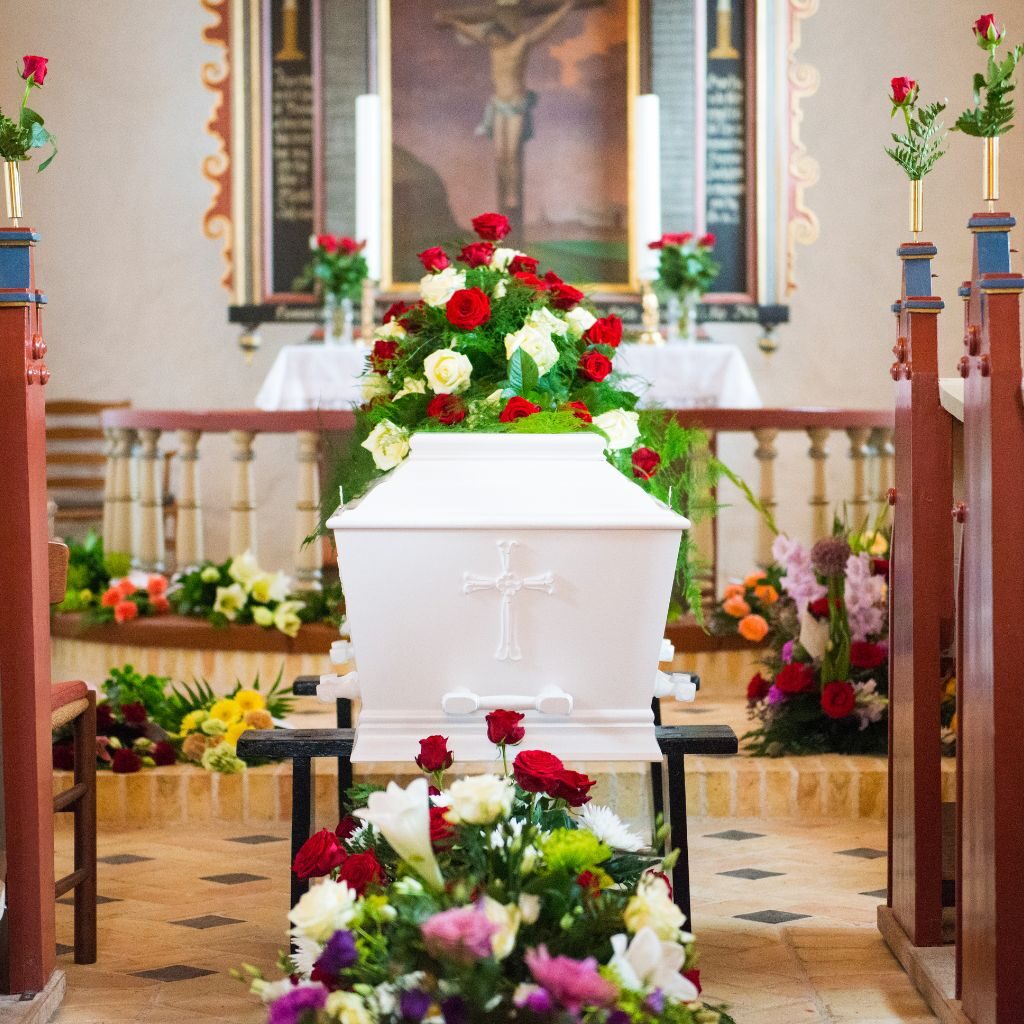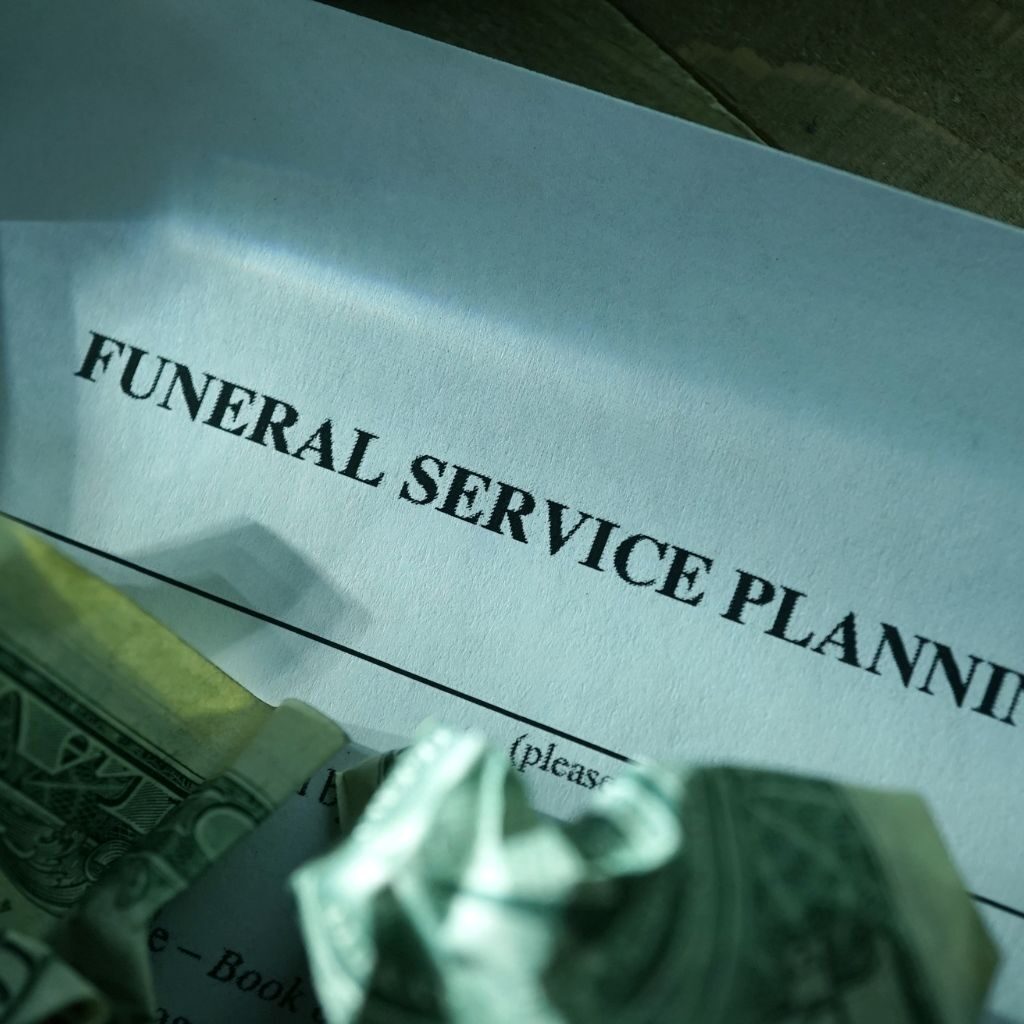Being in the life insurance industry, I am fortunate to be able to speak with a lot of people and hear many stories good and bad. I also get asked many questions about how to plan your own funeral. Who should take care of my final arrangements? How can I make sure that my loved ones are taken care of? Will it be how I want it to be? Should I even care because I won’t be here to witness it?
My mother, Margaret, is one of the most prepared, organized, caring, and thoughtful people I know. Several years back, she had a conversation with us about planning her own funeral services and arrangements – a topic that none of us wanted to think about but made perfect sense in the end.
Planning your funeral in advance may sound morbid, but it is actually a caring way to take care of your loved ones. By writing your own obituary and choosing between burial or cremation, you can make the process easier for those you leave behind.
Our family is more than fortunate to have our mother still here with us. We can’t help but be grateful for the thought and preparation she put into planning her own funeral and taking that burden off of family and friends. Here are 9 tips for planning your own funeral with ease, inspired by my mother, “Mama” Margaret:
Talk to your loved ones if you want to plan your own funeral
If your family is anything like mine, you know that when Mama calls a family meeting, it’s going to be important. But more importantly, you also know that attendance is mandatory. So when she calls a meeting, you need to be ready and present so that you can pay attention.
The subject of death is often taboo, but it’s important to have a plan in place in case of an untimely passing. The first step in planning your own funeral is to set aside time and sit down with your loved ones and discuss your final wishes. This event can be a difficult conversation, but it’s important to be clear about your preferences.
Do you want a traditional funeral service or a more intimate memorial gathering? Would you like to be buried or cremated? By having this conversation now, you can make sure that your final send-off is carried out exactly as you’d like.
What’s more, you can take some of the burdens off of your friends and family by making your wishes known in advance. So take the time to sit down and talk about your funeral plans – it could be the most important conversation you ever have.
Choose the type of funeral you want
The memorial service is the next step to planning your own funeral. You’ll want to choose the type of memorial service that is right for you and your family.
The memorial service can be a traditional funeral service or a more contemporary celebration of life service. You have several options to choose from as to what type of funeral you want.
A traditional funeral service is a somber affair, focused on grieving the loss of a loved one. A memorial service, on the other hand, is more about celebrating the life of the deceased. Both types of services have their own merits, and it ultimately comes down to personal preference.
Traditional Funeral Service
If you decide to go with a traditional funeral, then you’ll need to make sure that your loved ones are aware of what type of service it will be. This idea might include planning for any religious rituals that may need to be observed or special readings that need to be shared to honor your life.
A traditional funeral service usually takes place in a church or funeral home and includes a eulogy, readings from religious texts, and hymns. The casket is often present, and mourners may choose to view the body before the service.

Memorial Service
A memorial service can be held anywhere, from a park to a banquet hall. It may include musical performances, slideshows, and personal anecdotes from friends and family members.
There is usually no formal eulogy, and the focus is on celebrating the life of the deceased rather than mourning their death. Ultimately, both types of services can be healing experiences for those left behind. It simply depends on what kind of atmosphere you wish to create.

Decide on the burial or cremation
If you are going to plan your own funeral, this is a big one to get settled and not leave it up to your family to decide and debate with each other.
Two of the most common post-death choices are cremation and burial. Cremation incinerates the body so that only ashes remain, while with a burial, the corpse is intact. Both options can be conducted immediately after death or following funeral/memorial services.
If you choose burial, the body can rest in the ground or in a mausoleum. If you select cremation, the family has more options for what to do with the remains: scattering, entombment, or keeping them are all possibilities. In addition, choosing cremation is often cheaper than opting for burial.
There are many differences between burial and cremation, but one of the most common questions we get asked is about respect for the deceased. Some people want to ensure that the body stays intact, while others find the idea of decay underground repulsive.
Although some people think cremation means you can’t have a viewing, this isn’t the case. Oftentimes, religious or cultural customs dictate that there should be a viewing as a part of the funeral process.
Lastly, the funeral costs between burial and cremation are a deciding factor for many families not bound by any particular tradition or religious beliefs. Cremation is usually the more affordable option and does not require a costly casket or burial plot. You should review any related costs with your funeral home of choice.
Select a location for the service
One of the most important decisions you can make when planning a funeral is choosing the right location. The funeral home you choose will be responsible for handling all the arrangements, from the wake to the funeral service itself.
Will it be at a church, funeral home or maybe a graveside service? And while many funeral homes are able to provide a wide range of services, it’s important to select one that will be able to meet your specific needs.
When you’re pre-selecting a funeral service location, there are a few things you should keep in mind.
- First, consider the size of the funeral home and whether it will be able to accommodate all the guests you’re expecting.
- Second, take a look at the funeral home’s facilities and make sure they’re up to your standards.
- Finally, ask about the funeral home’s pricing and see if they offer any discounts or specials. By taking these factors into consideration, you can be sure you’re making the best decision for your funeral planning needs.


Plan the ceremony and music
Funeral homes are often thought of as places of sadness and grief. However, they can also be places of comfort and peace, where families can come to remember and celebrate the life of a loved one. One of the best ways to ensure that your funeral is a positive and memorable experience is to pre-plan the ceremony and music.
This allows you to choose funeral arrangements that reflect your loved one’s personality and tastes. Funeral planning also gives you the opportunity to select music that will lift the spirits of those who are gathered to honor your loved one’s life.
By taking the time to pre-plan the funeral ceremony and music, you can create a lasting tribute that will bring comfort and peace to those who grieve.
Write your obituary
Funeral planning can be a difficult but necessary task. One way to make funeral planning easier is to pre-write your obituary. By doing this, you can take care of all the important details in advance. This way, your loved ones will not have to worry about funeral arrangements after you are gone. In addition, pre-writing your obituary can help you to reflect on your life and how you want to be remembered.
It can also be a reminder to live each day to the fullest. So, while it may not be a pleasant task, pre-writing your obituary can be a helpful way to prepare for the end of life. the funeral plan helps with funeral arrangements and death. The funeral plan helps with the final resting place and life story details.
Writing your obituary as part of your funeral plan helps with peace of mind for loved ones left behind knowing that everything is taken care of and your story is told the way you want it to be heard. It also allows you to take your time in writing and rewriting until it feels just right knowing that it won’t be published until after you’re gone.
Even if your obituary is never actually used in your funeral service, the process of writing it can provide valuable closure and peace of mind.
Choose an officiant
When funeral planning, one of the first decisions you’ll have to make is who will officiate the funeral service. While the traditional choice is a clergy member, there are now many options available.
You can choose someone who is certified in funeral officiating, a funeral director, a pastor, or even a friend or family member. The important thing is to choose someone who will help create the perfect send-off for your loved one.
There are a few things to keep in mind when choosing an officiant. First, consider the tone you want for the funeral service. Do you want it to be traditional or more modern? Second, think about what kind of relationship your loved one had with the person you’re considering as officiant. And finally, make sure you’re comfortable with the person you choose. They should be someone you feel confident about entrusting with such an important task.
The funeral service is an important part of the funeral process, and choosing the right officiant is vital to ensuring that everything goes according to plan. With careful consideration, you can find someone who will help make your loved one’s funeral service perfect.


Pick out the readings and eulogies
One of the most important choices is selecting the readings and eulogies that will be a part of the service. This item can be a difficult task, as you want to choose pieces that are meaningful and reflect your life and values. However, with careful thought and planning, you can create a service that is both personal and memorable. Start by thinking about what you would like to hear at your funeral. Would you like biblical passages? Poems? Personal reflections?
Once you have an idea of the type of readings you would like, start gathering options. Ask family and friends for suggestions, look online, or visit your local library. Once you have a selection of possibilities, narrow down your choices by considering, which readings will be most meaningful to your loved ones.
Finally, don’t forget to include a eulogy in your funeral plans. This is an opportunity to share fond memories and celebrate your life. With careful planning, you can create a ceremony that is truly special.
Deal with financial matters and life insurance policies
The financial aspects of planning a funeral can often be overwhelming. One way to make the process easier is to plan ahead and talk with your family about any life insurance policies you may have. This idea will help ensure that your loved ones will not have to worry about financing your funeral services.
It’s also important to keep your beneficiaries up-to-date, as this can significantly impact the cost of planning a funeral and can also assign who will pay for your funeral. Furthermore, take some time to review any will or trust documents you have in place so that all legal requirements are met.
Finalizing these financial matters ahead of time can save your family from confusion and stress during an already difficult time. And if you plan your own funeral ahead of time, you can be sure that your final wishes are carried out as intended.
Take care of end-of-life paperwork
In addition to planning for funeral services, it’s important to make sure that any necessary paperwork is taken care of before death occurs. This eventually includes updating or creating documents such as a will or advance directive (living will), which can provide clear instructions as to end-of-life decisions.
Other important documentation includes a healthcare power of attorney and financials, but also provides a chance to celebrate the life of your loved one in a way that is both beautiful and respectful.

Choose funeral planning professionals
When pre-planning a funeral, it’s important to choose experienced and qualified professionals who will make sure your final wishes are carried out with respect and dignity. Start by researching local funeral planners, as they can provide valuable guidance regarding planning services, arranging for transportation of the deceased, and handling any other details related to the service.
You may also want to consider asking for recommendations from people you trust so that you can find someone who is reliable and trustworthy. Be sure to ask key questions about their experience planning funerals and get a written estimate of costs before making your decision.
By taking time to carefully research your options and select a qualified professional, you can rest assured knowing that your funeral will be handled with care and professionalism.

Conclusion
Your funeral service provides an opportunity to create lasting memories that your loved ones can cherish for years to come. Consider planning especial elements such as personalizing the casket, selecting a unique location, or planning a graveside dinner or memorial service.
These thoughtful additions will not only help make the occasion more meaningful for your family but also provide a wonderful way to honor the life of your loved one.
Finally, planning ahead can help ameliorate stress from your family during an already difficult time. By considering these nine tips for planning your own funeral, you can ensure that all of your wishes are met and create a beautiful service to commemorate your life.
We Can Help
American Assurance USA offers a variety of services to help with funeral planning. We can help you choose the right funeral home and provide guidance on the end-of-life process.
Not only can we help you plan your funeral, but we can also guide you with choosing the funeral home, music, readings, casket selection, and insurance options to cover the costs. And we can even help with the arrangements for your graveside service.
Planning for your funeral doesn’t have to be a daunting task. Let American Assurance USA help you through the process.


